

Hostels are no longer just a dirty, frugal alternative for fancy hotel rooms. Today, hostels are often the best choice of budget accommodation for solo travellers and shoestring travellers alike. Here are my top 15 tips on finding cheap hostel rooms online.
I have been travelling solo for about three years and I have checked in to my fair share of budget hostels. I would always recommend a hostel over a hotel for anyone travelling on a budget, especially if you can find a cheap hostel room somewhere.
However, many people are still in the dark about how to actually find advantageous prices for staying in a hostel. Low cost accommodation is one of the main pillars of budget travel, though. And that’s exactly why I’ve compiled this list of tips to help you find cheap hostels online. Here we go!

Nowadays, comparing online accommodation and booking tools to each other always pays off. There is no single platform that always has the best prices, so you need to compare a few.
There are dedicated hostel websites, like Hostelworld and HostelBookers.
These two used to be competitors, until HostelBookers became a part of the Hostelworld group. They’re now essentially the same platform in another digital jacket and they have basically the same hostels on offer. That’s why you really only need to check one of both.
Other than that, the king of travel booking also has a great selection of hostels. Booking.com allows you to filter on type of accommodation, so it’s easy to find budget hotels and hostels through this platform as well. Another advantage of Booking is that they also show other types of cheap accommodation.
Tools like Hostelworld and Booking allow you to sort the results by price, which can be very useful to find the cheapest options.
Let’s say you’re looking for cheap places to stay in Dublin, Ireland for a couple of days in September.

If you click on ‘Filter’ and then adjust the price slider, you’ll only get results between your two sliders. For example, if you set the slider to the right to 25, the only results you’ll get will be hostels where you can get a bed for under €25 per night.
Similarly, you can also use other filters. Let’s take the same example of a few days in Dublin.
After selecting ‘Hostels’ under ‘Property type’, you’ll find that there are filters for budget, distance from the city centre, payment methods, facilities and review scores, among others.
In other words: nothing is stopping you from finding cheap hostel rooms or even discounted hotel rooms on Booking and Hostelworld.
I recommend looking at hostels with 24-hour reception, free Wi-Fi and free breakfast. But that’s just me.
One of the biggest advantages of hostels over hotels is that you can save money by staying in a dorm room with strangers.
The general rule of thumb is as follows: the bigger the dorm, the cheaper the bed. So, if you’re looking for a cheap hostel room and you don’t have a problem sharing a room with 20 people you’ve never met before, go for it.
If you tend to keep to yourself and want a bit more privacy, most hostels also have 4-bed or 6-bed dorm rooms. This will cost a bit more, but it’ll still be cheaper than a hotel room or a private room in the hostel.
Yes, there are different kinds of hostels. Shocker.
Some types of hostels that are often used:

The category of hostel you pick will have an influence on the price you pay. For example, backpacker hostels tend to be cheaper than boutique hostels.
I personally like staying in boutique hostels if I have some money left over to splurge. If not, I’ll opt for a backpacker hostel.
Read more about the different types of hostels in this post.
Usually, when you book your hostel room online, there will be two options for payment: refundable and non-refundable.
You should read the terms carefully to find out what happens when you cancel your booking. Will you get a full refund? A 50% refund? Or no refund at all?
Make your final decision with this knowledge in the back of your mind.
One of the best ways to find budget accommodation is signing up to email newsletters.
After all, an email is much harder to ignore than a simple post on social media.
Here are a few accommodation newsletters you might want to consider subscribing to:
Similarly as with any type of accommodation or flights, you can save quite some money if you go for last-minute deals.
One way to find last-minute hostel deals is to sign up to email newsletters, as mentioned above.
Another way is to regularly check websites that often feature last-minute deals of any kind and filtering through the results.
Some websites that often have interesting last-minute deals on cheap hostel rooms:
Also consider checking individual hostel chain websites and check their prices. Even though they might not be advertised as ‘last-minute’, hostels tend to reduce prices if their rooms aren’t filled. Compare these prices with the hostel prices on dates that are a few months away. If it’s cheaper now, you’ve got a good deal on your hands.
Some individual hostels or hostel chains have an app – who doesn’t nowadays? – and offer nifty promotions and discounts in the app.
If the hostel you’re staying at isn’t part of a hostel chain, check to see if they have an app anyway. You might be surprised.
Many hostels nowadays will allow you to stay in a room for free in exchange for a few hours of work a day. This will allow you to travel longer and cheaper, while also getting to know many people from all over the world. It’s a win-win!

If you’ve already booked your hostel room, ask the clerk at reception if you can work in exchange for free accommodation. If you haven’t booked yet, send the hostel an email to ask if that might be an option.
In most cases, the work will be simple: administration, reception or helping out in the kitchen.
Much like finding cheap flights, one of the best ways to get budget accommodation is to book in advance.
If you’re not going on a last-minute trip, you should book your hostel as soon as you’ve booked your flights. This is one of the best and easiest ways to find cheap hostel rooms.
Besides: if you book in advance, you’ll still have more options to choose from.
This tip only applies if you’re going on a trip to two or more places outside of the high season.
Once you’ve got a hostel room booked for your first destination, ask the clerk at reception if they can recommend or book a hostel room in your next destination.
Many hostels are part of an international hostel network and can offer small discounts (usually 5-10%) if you book through them. And if not, you might get a free drink out of it.
It’s worth a try, right?
If you use online tools like Hostelworld, it might seem tempting to just book the cheapest hostel room available.
However, you could end up regretting that decision.

Much like budget airlines (like Ryanair and Vueling) make most of their money out of paid extras, budget hostels make money by letting their visitors pay for all kinds of additional services.
Linen, sheets, towels, lockers, Wi-Fi, … Anything that is more than just ‘allowing you to sleep there’ could have extra fees.
The key takeaway: read the fine print before booking a hostel room to avoid surprises upon arrival. Additionally, be sure to check out the general consensus in the hostel reviews.
I know this is an article about finding cheap hostel rooms, but hostels aren’t always the best option. You can find cheap rooms elsewhere, if you know where to look.
Some of my favourite options for cheap accommodation:
Read more: Cheap accommodation for solo travel
Once you’ve found a cheap hostel room, you don’t want to ruin that by being forced to pay extra for early check-in or late check-out.
Again, the best way to avoid this is to know beforehand when you can check in and when you have to leave the hostel. Respect those rules and you should be fine.
In most hostels, you can use the lockers to store your bags and hang out in the common room until your bus, train or whatever arrives. Although you might have to pay a few dollars to use the storage, it’s probably still less than the late check-out fee.
There. Now you know how to find cheap hostel rooms and you’ll never overpay for accommodation again. You’ve just made the first step to becoming a budget traveller. Congratulations!
Want to know more about cheap solo travel? Read these posts:
Do you have any tips to find cheap hostel rooms? Let me know in a comment.
Thanks for reading!
-S
Photo credits:




You might think finding cheap food and drinks when you’re travelling is difficult. You might even think it’s unnecessary. What if I told you it’s easier than you might think and it will change the way you travel?
Latest update: 29 November 2018
Note: this post uses insights from my ebook “The Insider’s Guide to Solo Travel on a Budget“, dedicated to helping solo travellers save money on the road.
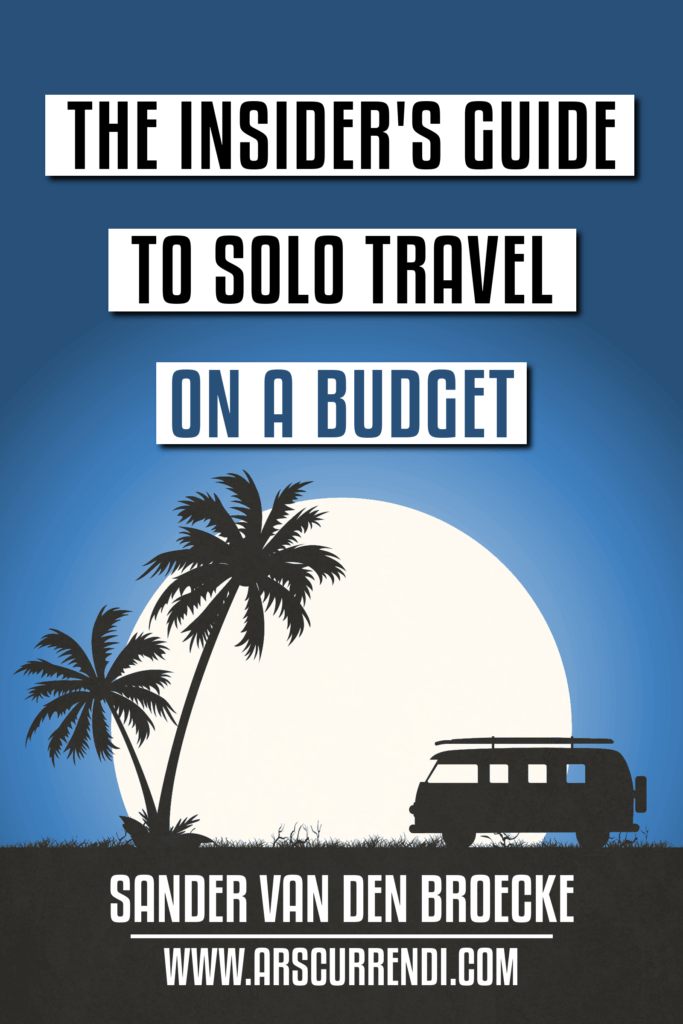
As such, this post is the third in a miniseries of blog posts about cheap solo travel. I’ve also written two blog posts about how to find cheap accommodation and how to find cheap transport (including flights) as a solo traveller.
You’re not here to watch me babble on about my book, though. You’re here to learn how to find cheap food while travelling. Let’s take a look!
Being a food lover myself, I find it hard to imagine being frugal about food and drinks. Fortunately, you don’t really have to. If you have any brains at all, you’ll know to plan ahead and find ways to save. And that’s exactly what I’m here for.
On average, food and alcohol is the third biggest cost of a holiday. That means that it’s definitely possible to find cheaper alternatives for the more expensive chunks while still enjoying your holiday to the fullest.
In the following article, I’ll share my top 7 ways to find cheap food on the road with you.
Many blogs, websites and Instagram accounts are entirely dedicated to bringing you the best food that a culture has to offer.
Blogs are mostly used to help give you some inspiration as to what you’re going to cook. There are entire blogs about Thai food, Mediterranean food and even Nigerian food. It can be tempting to spend hours of your day looking at blog posts and recipes on these websites.
Of course, there is also an abundance of drool-worthy Instagram accounts that post food pictures and videos. My favourites are @sproutedkitchen, @chefjacqueslamerde, @lilydiamond and @pastrywithjenn. (These accounts don’t only make me jealous of their photography skills, but also of their cooking. Nice.)
Other useful websites are TripAdvisor and Foursquare. Both give you the option to sort nearby restaurants and bars by price, which makes it incredibly easy to pick out the cheapest places to eat and drink in your destination. On Foursquare, you can sort from $ to $$$$ under “Price”; on TripAdvisor, you can choose between “Cheap Eats”, “Mid-range” and “Fine Dining”.

Photo by Lan Pham on Unsplash
For many people, street food is one of the most exciting parts of travelling. To them, a trip abroad isn’t complete without eating street food. You HAVE to eat pastizzi when you’re in Malta, drink boba tea in Taiwan and eat poutine in Canada. You just have to. There’s no getting around it.
For starters, it’s cheap. In many regions of the world – especially in typically cheap regions like Southeast Asia and Latin America, it’s very easy to find a food stall that will serve fresh street food for barely any money.
Secondly, it’s delicious. Enough said.
Thirdly, street food gives you a taste – pun intended – of other cultures. You’re not getting a dumbed-down version of the food like you might get in a hotel, but you’re getting an authentic look into what life is like for the locals. Street food usually presents the best of the local cuisine, as some food trucks and carts can sustain their business for 30-40 years with recipes passing down through generations.
The truth is that there isn’t a real way to consistently and systematically safety-check street food vendors. However, that doesn’t mean that you’ll get sick and die when you get pad thai from a food truck in Thailand.
There are some ways to avoid getting food poisoning from street food.
All in all, street food is a fantastic way to get to know a culture and eat delicious meals for little money. If you keep your wits about you, you should be more than fine.
Being prepared for your solo trip and doing your research really pays off. Going into a new city with no idea what you’re doing and no idea what you should look for is just about the worst way you could start your holiday, and you’ll probably spend more than you want to.
It’s a well-known fact that in most destinations, the prices of restaurants and bars around the city centre and main tourist areas tend to be cranked up quite a lot. If you really want to save money, you’d be well off going to the restaurants and bars that the locals go to. To find those, your best bet is to just ask one of them.
If you don’t have access to any locals for some reason, it’s more than worth it to just wander around little streets and less-known areas in search of some cheap restaurants that serve decent food.
Local food is cheaper than imported food, period. When in Thailand, you’ll find cheaper pho than in America and anyone who wants to eat good mussels for a decent price should be in Belgium. After some quick research, you should be able to find out which foods are common at your destination and adjust accordingly.
Added bonus: eating local foods is more environmentally friendly since it doesn’t have to be flown halfway across the world.
A quick Google search can tell you a lot. Just by searching “Cheap food in [destination], you can find out where the cheap restaurants are, you can locate great food stalls and you may even come across some events that offer cheap food. Now that’s something you’d want to know about, isn’t it?
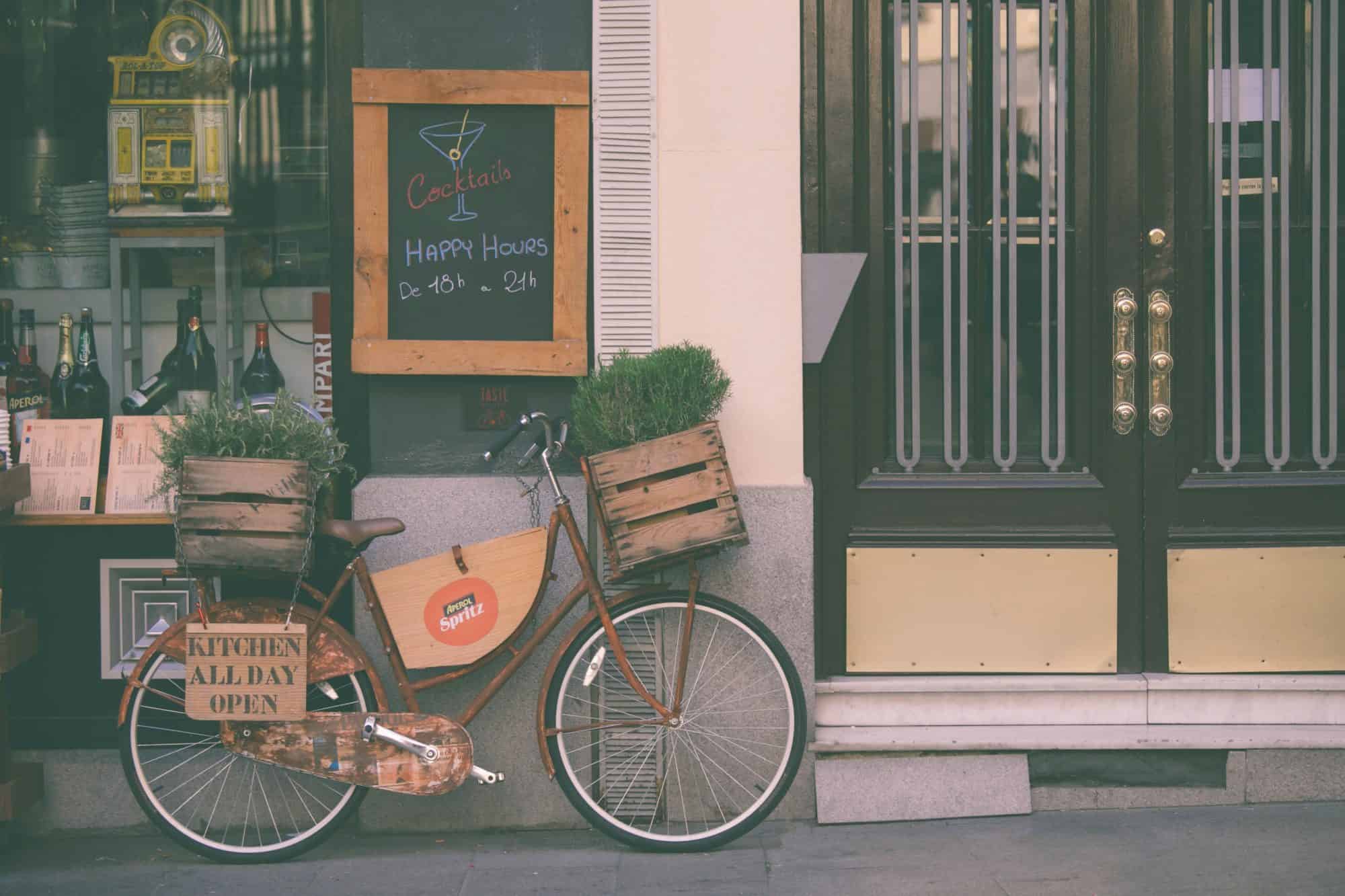
Photo by photo-nic.co.uk nic on Unsplash
In general, I’d actually advise against drinking alcohol when you’re travelling alone. You don’t have to take account of your travel companions, so you can do whatever you want to, but there’s also nobody that can help you when you need it. Getting drunk is one of those times when you might need it.
However, if you want to drink some alcoholic beverages without getting completely wasted, you might want to consider drinking during happy hour.
Just in case you don’t know what happy hour is: it’s a period of time in which a venue (restaurant, café, bar, etc.) offers some kind of discount, mostly on alcoholic drinks. These discounts come in many forms: “buy two, get one free”, “two for one” and free appetizers, among others.
Obviously, there’s not one set international time for happy hour. You’ll have to do some quick research to find out which venues are offering discounts. Locating venues with happy hour is easy enough: apps like Loople can help you with that.

Those bottles of water that you buy add up. Let’s say you buy two bottles of water a day, at $0.75 each. If you’re travelling for one month, that’s $45 worth of bottled water. Is that really worth it?
Of course, it is if the tap water at your destination isn’t safe to drink. After a quick Google search, you should have an idea of where you can and where you can’t drink tap water. This infographic can be a good place to start.
Some other tips to save money on water:
Most travellers have a sandwich or something similar for lunch, and then go out for dinner. Restaurants know this, and they adjust their prices based on it. Now that you know it as well, you can adjust your eating habits.
Usually, restaurants serve the same food at lunch and at dinner, with only one big difference: the price. Seeing as it’s the same food, you’re not compromising quality for a few bucks, but rather saving money by being smart and avoiding the masses.
For an even better chance to find cheap food, be sure to ask your waiter if they have any lunch specials as well.
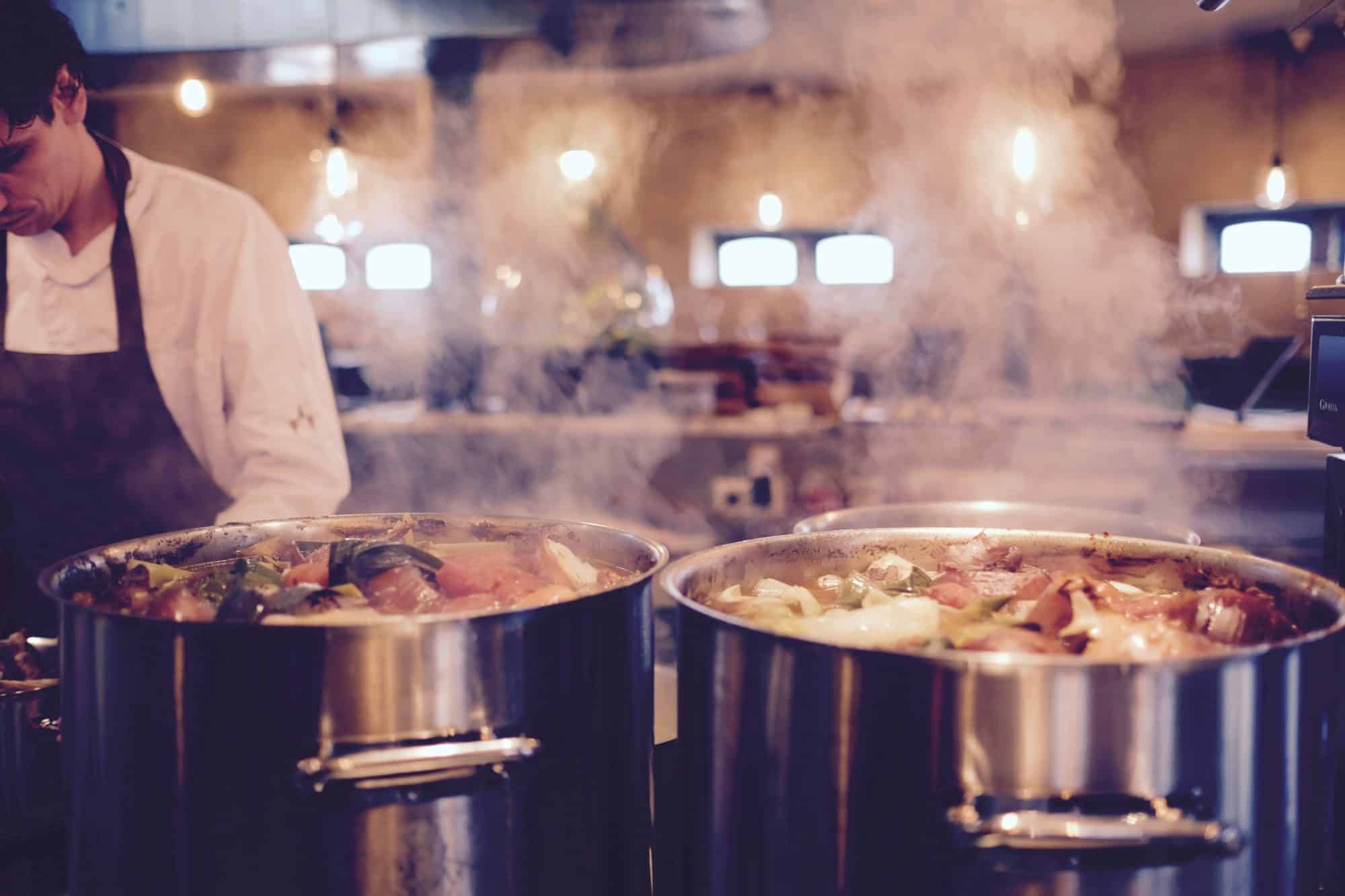
Eating out at restaurants every day during your trip is one of the best ways to burn through your budget. Cooking your own food while travelling can counter this problem. Even at home, cooking is less expensive than eating out. Why shouldn’t it be on a holiday?
Having access to a kitchen at your lodging is obviously essential if you want to cook your own food. Most hostels and Airbnb‘s nowadays have kitchens, and even in some hotels, you can access some kind of kitchen. At the very minimum, you’ll want to look for accommodation with a fridge and a stove or an electric burner.
Although cooking in a hotel room without access to a kitchen is possible, I’d still recommend looking for a place where you can cook without having to lug around a rice cooker.
Make a meal plan for an entire week (if you’re travelling for longer than one week). If you won’t be abroad for longer than a week, plan out the meals of your entire holiday.
By planning out your meals, you spend time thinking about your food and you make healthier and cheaper choices. It also prevents you from having to throw away leftovers you didn’t know you still had, because you know exactly what you’ll be eating and when you’ll be eating it.
Finding cheap food in a supermarket is surprisingly easy. I have some tips to help you:
This post marks the end of the Cheap Solo Travel series. I hope you enjoyed and learned something by reading my blog posts.
If you have any tips to find cheap food and drinks as a solo traveller, be sure to let me know in a comment.
Thanks for reading!
-S
PIN IT!


Finding cheap transport while travelling solo can be more challenging than it would be if you were travelling with other people. If you use these tips, however, you’ll be sure to find those cheap flights and other modes of transport you’ve been looking for.
Note: this blog post uses insights from my ebook “The Insider’s Guide to Solo Travel on a Budget“, where I teach everyone how to be a better solo traveller and spend less money on the road.

This blog post is the second in a miniseries of three dedicated to cheap solo travel. You can also learn how to find cheap accommodation or cheap food and drinks while travelling solo. I created this series to help you travel by yourself and spend less while doing so. It uses things I learned myself during my solo trips and tells you things I wish I had known when I started travelling alone.
One of the most expensive parts of many trips is the flight. Everyone that wants to travel has to spend money on transport, but it doesn’t have to be as expensive as you think.
There are many ways in which you can save money on transport, which just means that you get to spend that money on other parts of your trip, like accommodation or food.
The majority of this post will discuss how to find cheap flights because that’s the biggest cost in most cases. It will also include information on how to find cheap buses and trains, and solo alternatives for rental cars (which tend to be very expensive for solo travellers).
Many travel experts have their own tips and tricks for finding cheap flights. Everyone has a favourite flight metasearch engine, and there are so many that finding cheap flights nowadays is really not as difficult as you may think. I’ll help you with it.
I’ll divide these tips into two main categories, both filled with extensive knowledge and subcategories:
You’ve probably already used one (or more) of these flight search websites while looking for a flight. On one page, they conveniently list the results from dozens, if not hundreds, of airline websites. They scour through these websites, looking for the best offers in a matter of seconds.
Nowadays, there are plenty of flight metasearch engines to search from. There are so many that it may be hard to know where you should start. All of these websites have advantages and disadvantages, which is why you shouldn’t perform all of your searches on just one website.
In this section, I’ll give you an overview of my personal favourite flight search websites, along with their (dis)advantages and why I use them. These are listed in bullet points for your convenience, so you can quickly scan through them.
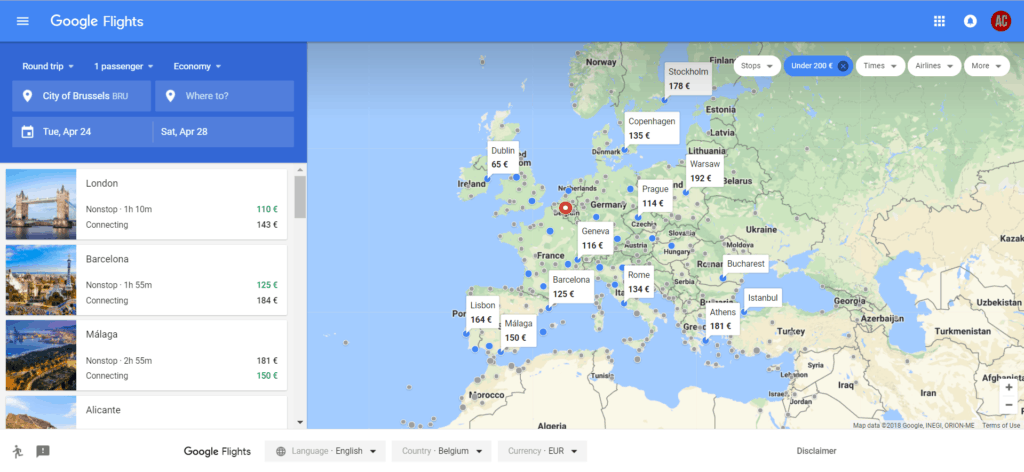
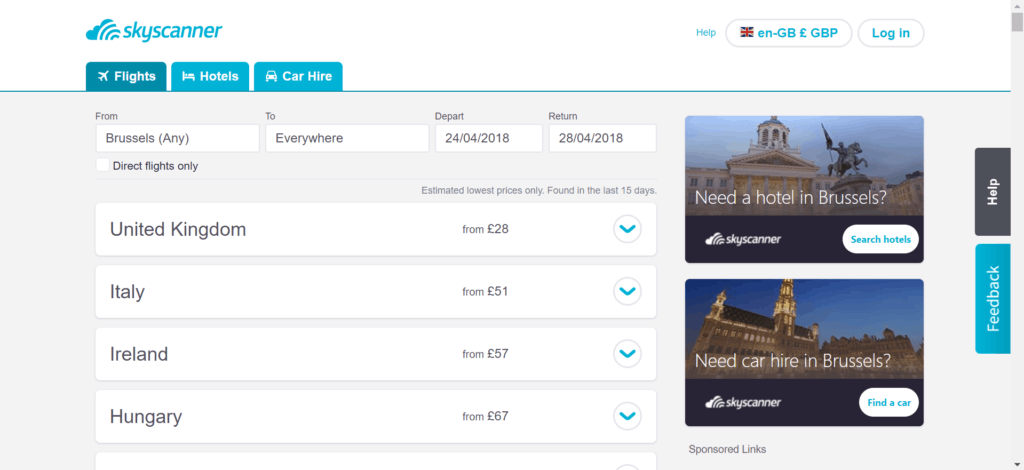
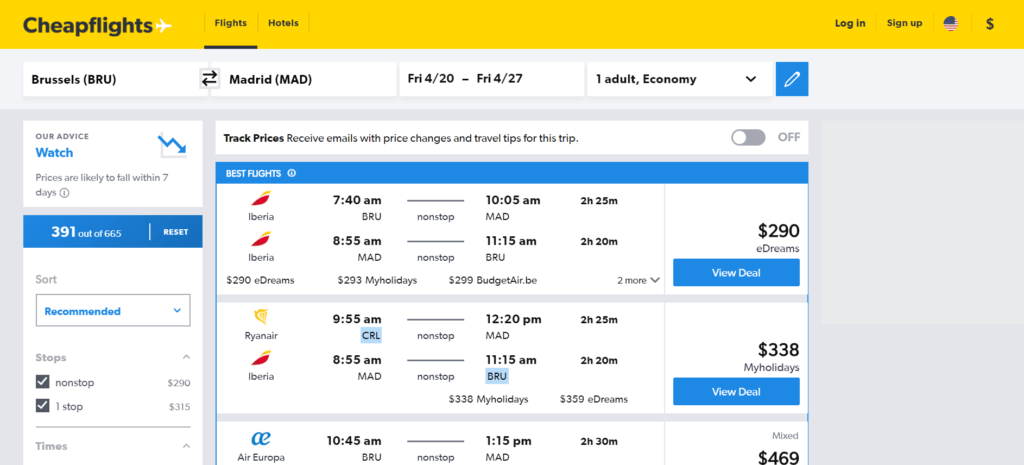
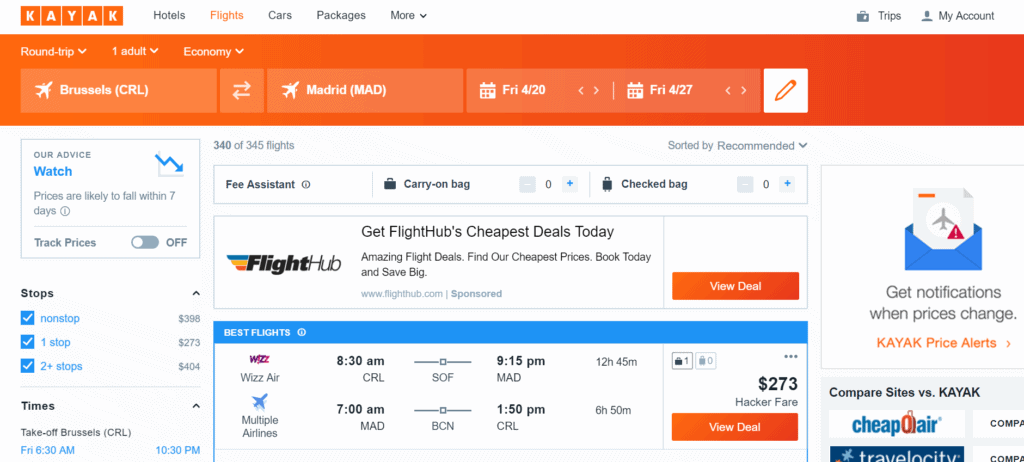
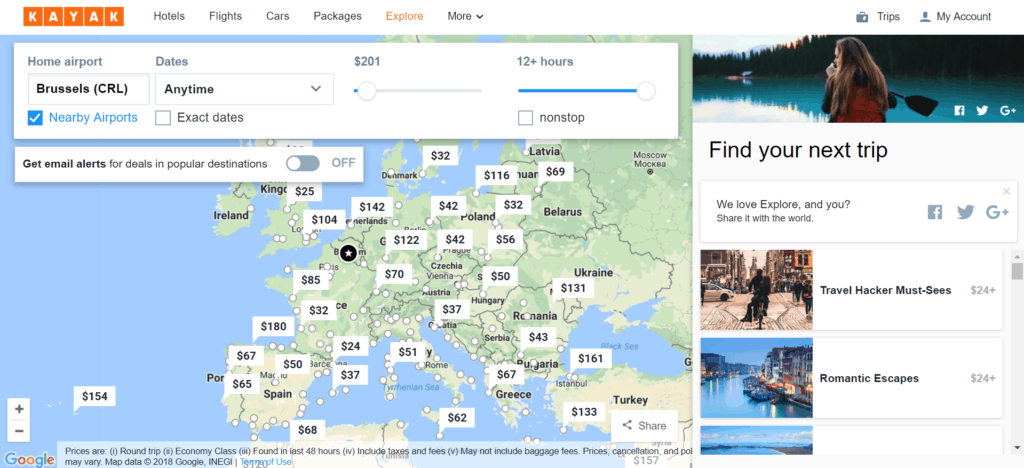
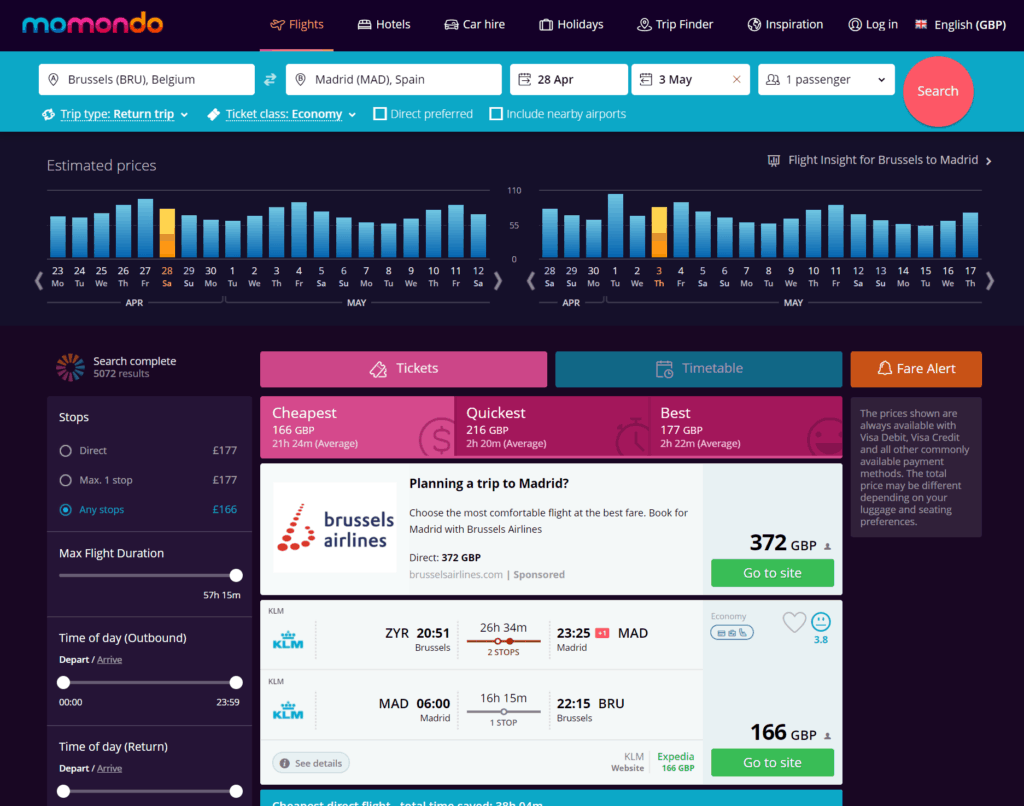
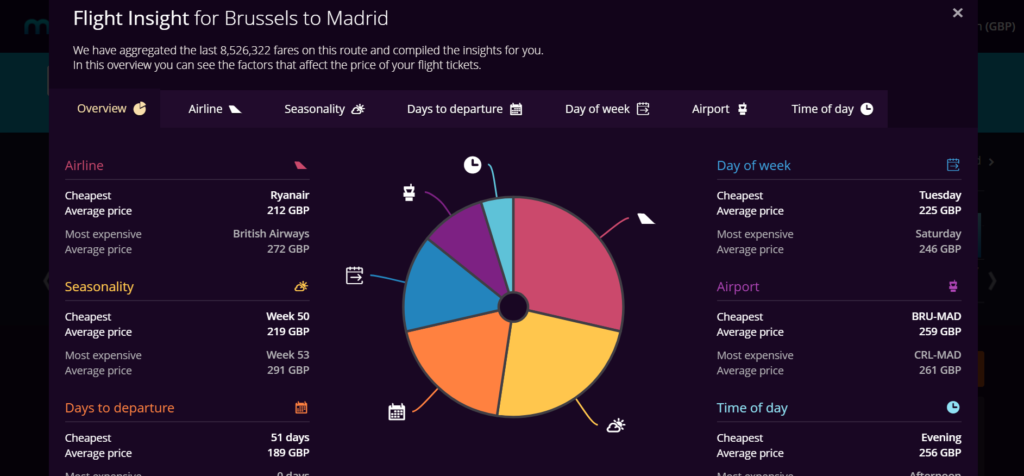
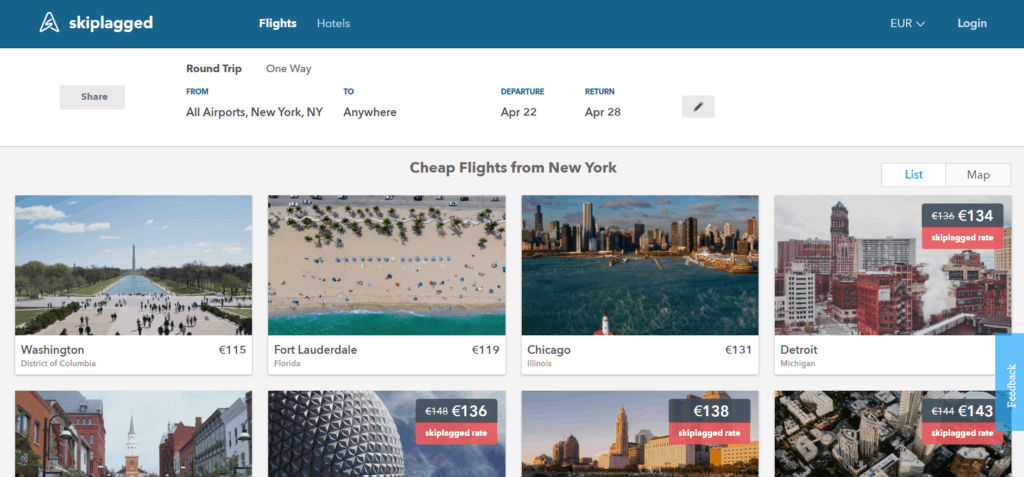
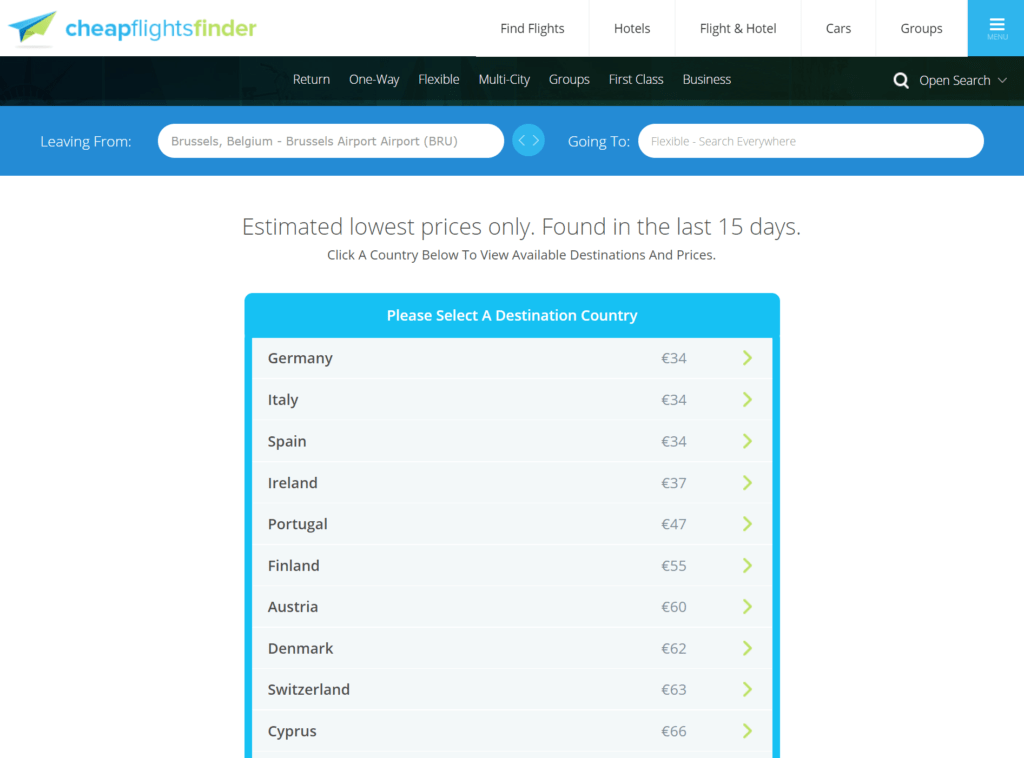
Of course, there are other ways to find cheap flights than to scour metasearch engines in search of the best deals. Here are some more tips.
Being one of the busiest industries in the world, the travel sector is bound to make some mistakes. These mistakes don’t always mean that your flight gets delayed or cancelled. In fact, you might even get a cheaper flight out of them.
An error fare is a flight for which incorrect information was entered into the system. For example, an employee can forget to take fuel costs into account, use an incorrect currency or forget a zero at the end of the price tag. In other words, error fares always come from human mistakes.
There are some things you should keep in mind when you’re considering booking an error fare.
If you’ve considered all of the above, and you still want to find error fares, go for it. In that case, here are some websites that often post about error fares. I recommend subscribing to their mailing lists to make sure that you never miss one. (Cheap Flights Lab, Secret Flying, Fly4Free, Airfare Watchdog)
This is arguably the most famous trick for people trying to find cheap flights. If you’re browsing through airline websites or metasearch engines, make sure you do it in incognito mode. (Control/Command + Shift + N on Google Chrome, Control/Command + Shift + P on Firefox, Command + Shift + N on Safari)
You’ve probably been there. You’re looking for a flight to your dream destination, and you check some websites every day. However, after two or three days, you find out that the prices are going up.
“Well, yes, but how can an incognito window help me with this?”
These websites use files called cookies against you. They know your browsing history, and when they see that you repeatedly look at the same flights, they will increase their prices. This way, they make it seem like seats are selling out and you should book sooner rather than later if you still want to be on the plane. In reality, this is not happening.
If you use an incognito window – which doesn’t track cookies – you’ll see that the price stays exactly the same. You can also use this technique to buy other products online.
It’s only logical that budget carriers offer cheaper prices than other airlines. They save money in various ways, including limited or no onboard luxury features, multifunctional staff, in-flight service and flying to alternative airports.
Some of the biggest budget carriers include Ryanair, EasyJet, Southwest Airlines, Vueling and Norwegian Air.
I’ve already mentioned joining mailing lists as a way to find cheap flights before, but here it is again. Just because it really is one of the best ways to find great deals on plane tickets.
Mailing lists often include results that can’t be found on the metasearch engines I mentioned above or on the airline’s websites. You’ll receive emails whenever flights are really cheap or when a particular flight has dropped in price. In some cases, you can even select your favourite airport(s) and only get updates about flights from there.
Some good places to start are Scott’s Cheap Flights, Airfare Watchdog, The Flight Deal and HolidayPirates.
After signing up for frequent flyer programmes, you can track and save miles and use those miles to pay for your next flight. This is a great way to save big on flights and even get to fly for free. Nowadays, most airlines have a frequent flyer programme, and some of them even team up, so that you get to spend your miles at different airlines.
The biggest frequent flyer programme in Europe is Miles & More, launched by Lufthansa in 1993 and used by twelve European airlines. This programme allows you to save miles for flights with all Star Alliance members.
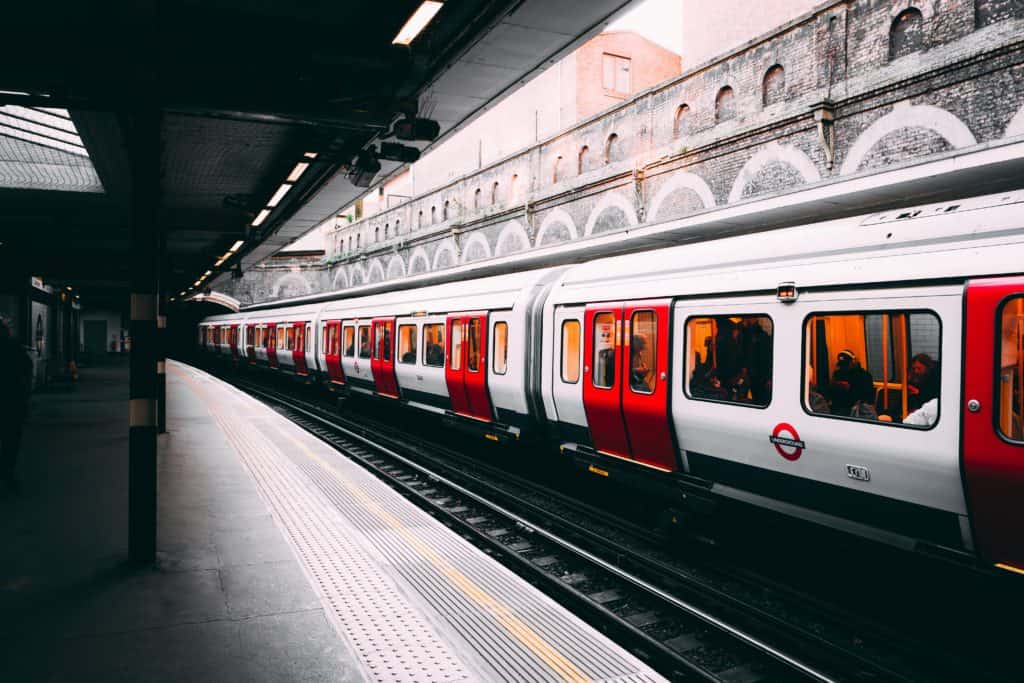
Especially in Europe, both trains and buses are popular options for long-haul travel. Because of that, there are many websites and companies dedicated to transporting Europeans, and more competition means cheaper prices. Yay!
The Man in Seat 61 has a very extensive website filled with information about train travel all around the world. His website even includes information about which trains to take in North Korea and how to plan a trip on the Trans-Siberian Railway.
Some things you should keep in mind when looking for cheap train tickets:
If a cheap bus ticket is what you’re after, there are plenty of options. Especially in Europe, many companies offer bus rides that are sometimes even cheaper than flights (although it will take you longer to arrive at your destination).
Some great European bus companies are FlixBus (all through Europe), Avanzabus (in Spain), MeinFernbus (mostly Germany), Ouibus (mostly France, Italy and Spain) and Alsa (mostly Spain and Portugal).
There are also meta search engines for bus tickets, including Wanderu, Comparabus and Busradar.
Even if you’re travelling with other people, rental cars tend to be more expensive than public transport. Of course, they do offer more flexibility. As a solo traveller, you can still find alternatives for rental cars that are cheaper and more flexible.
If you didn’t know, BlaBlaCar is a long distance carpooling service that allows drivers to ‘sell’ spots in their car to travellers on a budget. On the website, you can enter where your trip starts and ends and when it’s going to happen. With any luck, you’ll find a driver who’s going to take you there.
Of course, the trips from bigger cities will have more options.
You’ll not only get a cheap drive down to your destination (without having to do anything!), you might also have some great conversations and even make a few new friends. If you’re not a big talker, you’ve still got nothing to worry about. Most drivers are completely fine with silence or putting some music on.
Photo by rawpixel.com on Unsplash
Hitchhiking is basically a free alternative to the BlaBlaCar system, without any guarantees that you’ll actually get a ride. If you don’t mind risking the possibility that you may have to wait for hours until somebody picks you up, hitchhiking can be a great way to get around.
However, hitchhiking isn’t safe – or even legal – everywhere. Here are some tips to make sure that you have a safe hitchhiking experience:
If you don’t feel comfortable sharing a car with somebody you don’t know, you could still rent a car. However, if you do, take a look at some package deals. Some websites (like Expedia, Kayak, Booking, Travelocity and Orbitz) offer deals if you book your flight and your rental car with them. That may lead to some small savings.
Note: this (obviously) only works if you haven’t booked your flight yet.
Everyone knows that transport prices, and flight prices in particular, change. They change often, they change quickly and they change quite dramatically. However, if you understand how the system works, you can try to get around it.
There’s a general rule of thumb that says that you should book your flights (or other transport, for that matter) in advance. For flights, this seems to be somewhere between 25 and 150 days before takeoff. Some people say it’s between 45 and 60 days before the flight, some say it’s exactly 54 days before. However, as long as you avoid the “Early bookers” and “Last minute bookers” windows, you should be fine.
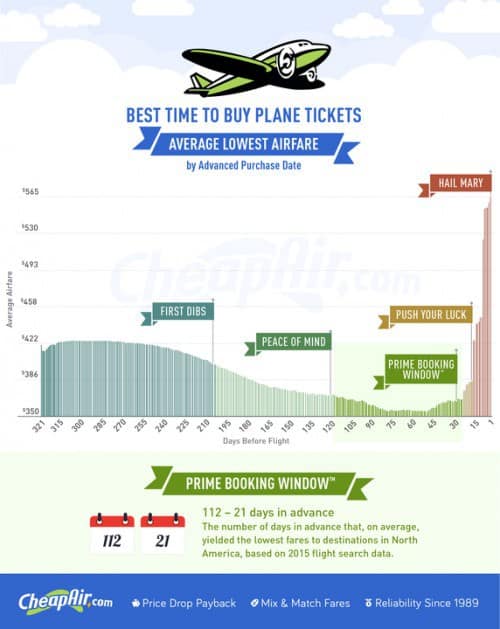
Photo courtesy of cheapair.com
There are three main age groups that can benefit from discounts: children, students and seniors.
People who are travelling with children may not be reading this, but I’ll throw this tip out there just in case. Children often get reduced entry fees at museums, theatres, tours, etc. It would be foolish not to use these discounts if you’re travelling with kids.
As a student, you’re more likely than anyone not to be able to spend a lot of money on travel. You can counter this problem by using the various student discounts that are available all over the world. Just be sure to take a valid student ID card with you (sometimes, even a document that looks like a legit student ID is enough) and you’re good to go.
There is often some kind of discount available for senior citizens as well. These discounts start at ages as early as 50 years old. There are cheaper tariffs available for public transport, nature reserves, airlines, cathedrals, and much more.
Although taking an overnight bus, train, flight or boat may be a bit more expensive than its daytime equivalent, you won’t have to pay for accommodation. In most cases, that’s still a pretty good deal and a great way to save some money on the road.
You’re going to have to sacrifice your quality of sleep for one night, but that’s nothing compared to the money you’ll save. Just be sure to bring an eye mask, earplugs and a neck pillow.
Well, that was it. You can also read about how to get cheap accommodation as a solo traveller and how to find cheap food and drinks as a solo traveller or you can download my free ebook on cheap solo travel.
Do you have any cheap transport tips for solo travellers that I missed? Let me know in a comment!
Thanks for reading!
-S
PIN IT!
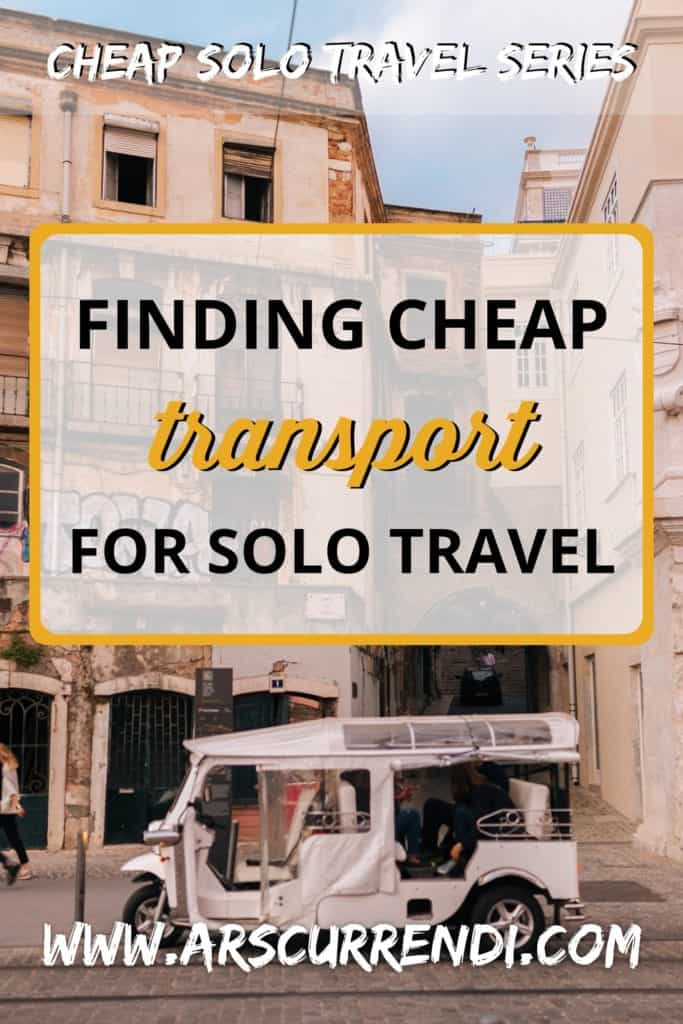
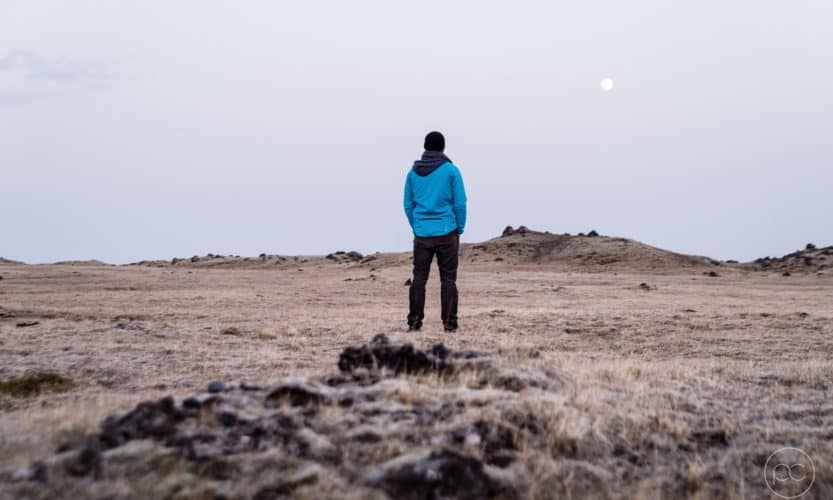
Finding cheap accommodation is a key part of saving money when travelling solo. Accommodation is one of the most expensive aspects of solo travel, but you can save some money using these tips.
Latest update: 2 July 2019
Note: this blog post uses insights from my free ebook “The Insider’s Guide to Solo Travel on a Budget“.
Disclaimer: this post may contain affiliate links, meaning that, at no extra cost to you, I will make a small amount of money if you purchase something through one of these links. Thanks for supporting Ars Currendi!

This is my first blog post in a series of posts about cheap solo travel. The second post focuses on cheap transport and the third post focuses on cheap food and drink.
I decided to create this series to help you travel by yourself and have the time of your life for less money, using tips and insights I’ve gained on my solo trips and telling you things I wish I had known when I started travelling alone.
There are too many people that still don’t sleep anywhere else than in a hotel when they travel. I want to change that. It’s easy to find a place to sleep that is not only cheaper, but also charming and entertaining.
Nowadays, most hostels and other cheap solutions have the same features as hotels, if not even more. If you are able to save money on your accommodation, that means you can splurge on other parts of your trip. In other words, cheap accommodation will help you have the holiday of your life, without having you worried about spending too much. Isn’t that what we’re all looking for in the end?
Tourists and travellers often don’t want to spend the time trying to find a cheap place to sleep, and they end up paying too much for their accommodation. I can assure you that it’s worth it to take some time and research cheap accommodation options so that you find one you’re happy with.
There are many ways to save money on the road. One of those is to choose a cheaper alternative for the ever-popular hotel, which can run down your budget rather quickly. Here, I’ll list some options.
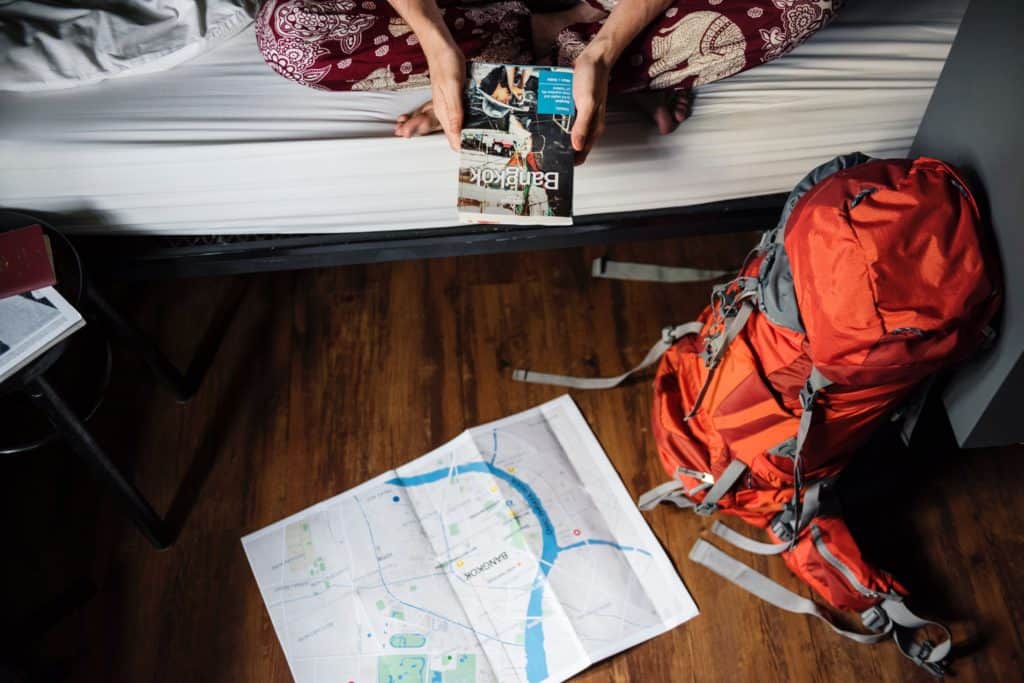
For budget solo travellers, hostels seem to be the most popular accommodation choice. There are a number of very good reasons why hostels are so popular.
First off, though, some explanation as to what a hostel actually is, in case you didn’t know. A hostel is a type of accommodation mainly aimed at young travellers (18-30 years old). The cheapest, most common option in a hostel is a bunk bed in a mixed dorm room. That means that you’ll be sharing your bedroom, bathroom and kitchen with strangers. It can seem daunting, but you get to spend time with some cool people and even make new friends!
Hostels have different sizes of dorm rooms (the bigger the room, the cheaper the bed). Most hostels even have private rooms if you’re not comfortable sharing a room with people you don’t know. These private rooms are usually more expensive than a bed in a dorm room, but still cheaper than hotels.
Nowadays, there are still many people who believe hostels are dirty, unreliable places and they don’t want to spend any time there. However, in reality, most hostels are as clean and trustworthy as any hotel (and they’re cheaper!)
My favourite website to book hostels is Hostelworld.
If you’re familiar with vacation rentals, you’ve probably heard of Airbnb. Just in case you haven’t: Airbnb is a website where people can rent their apartments, rooms or even separate beds for a short amount of time.
Tip: if you’re new to Airbnb, sign up through this link and you’ll receive €35/$43/£31 worth of travel credit!
Airbnb prices are usually something like a fancy hostel or a cheap hotel. That makes it a great option if you’re travelling with your SO, with friends or with family. However, you can still find great deals as a solo traveller. For example, I found a bed in a shared room in Malta for €20 a night. The people hosting this room were renting out separate beds in their own house, while they lived there as well. They managed to create an international hostel, right in their own house. Those people ended up being one of the best parts of my trip to Malta.

Couchsurfing is a “service that connects members to a global community of travelers”. At least, that’s what they define themselves as on their website.
In short, that means that you’re staying with somebody without paying rent. It’s free. The catch? You’re sleeping in somebody’s home, and you might not get along with them.
If you’re thinking “that’s a small catch for free accommodation!”, you’re absolutely right and I agree with you 100%. If you’re couchsurfing, you get to stay with somebody who knows the ins and outs of your destination. You can talk to them and you can become friends if you have a lot in common. They might even show you around and take you to the places only insiders know about.
Of course, there’s always the concern of safety in situations like these. However, the company takes many measures to ensure that their travellers (solo travellers in particular) are safe. Most CS hosts were first-time surfers at one point, and they started hosting to give back to the community (read: you). They’ll try their very hardest to make you feel safe and at home while you’re there.
The website also has safety precautions. For example, you can check if your potential host has a picture attached to their profile and if they have confirmed government documents. The reference system is probably the best guideline for a safe host: if they have positive reviews from other surfers, it’s almost sure that you’ll be safe and have a good time as well.
There’s only one thing better than cheap accommodation, and it’s free accommodation.
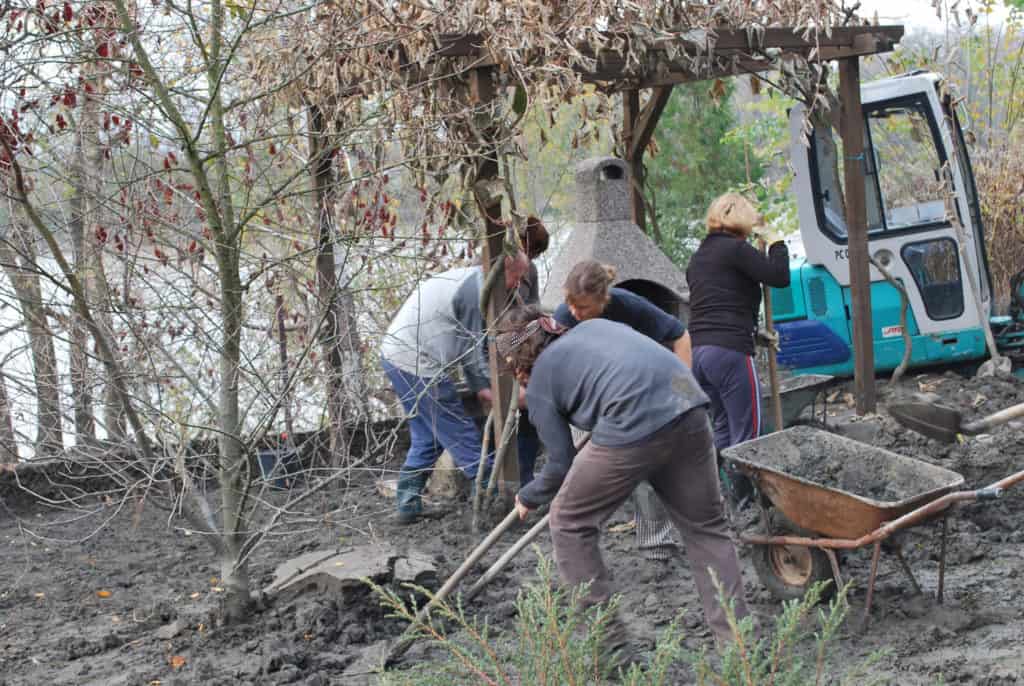
The next option for cheap accommodation (free, technically) is volunteering. This has become increasingly popular over the last years, especially with young solo travellers.
Note: this is not about volunteering for an organisation and paying for it. This is about spending time abroad and helping out a local community in exchange for (food and) a place to sleep.
Some great websites to find a volunteering job abroad are WorkAway, WWOOF, AuPairWorld and FindAuPair.
Websites like WorkAway and WWOOF introduce possibilities for travellers to work for a host and they reward you with free accommodation. These hosts include farms, schools, NGOs and other local projects. This means that you’ll really be submerged in a foreign culture, so it’s a great way to find out more about the rest of the world. There are often short-term positions available.
Working as an au pair means that you’re essentially a nanny. It’s usually much more of a commitment than the aforementioned possibilities. An au pair is usually a young person (between 18 and 30) who lives with a host family for a certain amount of time and cares for the children. The biggest difference is that you actually get paid as an au pair (minimum monthly wages range between $100 and $500) on top of getting free accommodation.
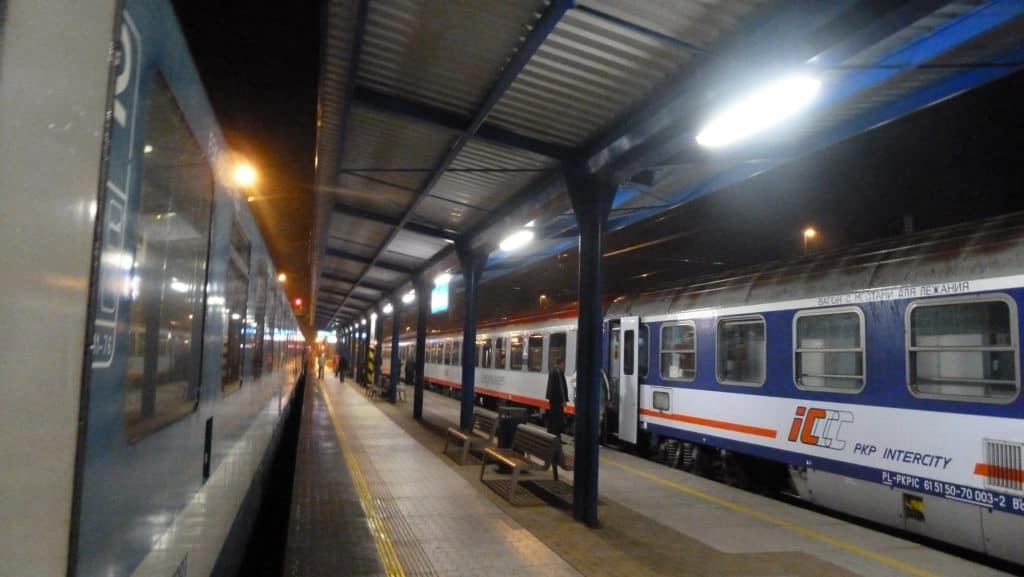
Okay, yes. An overnight bus, train, boat or flight might be a bit more expensive than its equivalent in the daytime. However, you’re essentially getting a place to sleep for free. And while it might not be the most comfortable, you’re getting cheap accommodation, aren’t you?
With an eye mask, earplugs and a neck pillow, your quality of sleep might not be so bad. More importantly, you’re saving quite some money on your accommodation budget. That’s money that you get to spend elsewhere!

House sitting is on the rise. And even if you’ve never actually done it, you probably know of someone who has. Think about it. If somebody leaves for two weeks to go on holiday and they don’t want to leave their house, pets and plants alone, they ask someone to look after that. If you’re lucky, you might get to do that in exchange for free accommodation!
The thing is, the market for house sitters is rather saturated and there’s a lot of competition. There are way more hosts than sitters. One way you can get ahead of others is to join a house-sitting Facebook group like House Sitting Cafe or House Sitting World.
There are also websites dedicated to helping hosts find someone to take care of their house while they’re gone, such as TrustedHousesitters, Nomador, House Sitting World and HouseSitMatch.
If you’re a seasoned solo traveller, you know the toughest part of finding cheap accommodation is avoiding the single supplement. In case you’re not so seasoned, here’s what that means.
Hotels, cruises and other similar organisations charge solo travellers with a solo supplement. That’s a premium that is charged to them because they’re taking up a room that could be used by two people. This supplement can take up between 10% and 100% of the original price.
There are some ways to avoid the single supplement, though. And I’m here to teach them to you.
The best way to guarantee that you won’t be charged with a single supplement is to, well, make sure that you’re not single anymore. You can find like-minded travellers all over the place. That’s especially true when you’re staying in hostels or taking a group tour.
Related: Making friends as a solo traveller
If you find somebody you really like, you can ask them to become your roommate. That way, you’ll both save money and you might even make a new friend.
Can’t find a buddy to bunk up with? No worries. There are still other ways to eliminate or reduce your single supplement.
For example, you can use your diplomatic skills, talk to the operator/vendor and try to convince them to waive the supplement. You can do this in real life, over email, through Twitter, by calling the operator, …
Chances of this working are admittedly slim, but that doesn’t mean you can’t try. After all, you’ve got nothing to lose.
In the shoulder season, low season or off-season, tours and rooms are less likely to be fully booked. That means that operators might be more desperate to fill up their empty spots, and be more likely to waive the supplement if you ask.
Travel agents know the ins and outs of the travel business. They know of even more ways to benefit solo travellers. One of those ways is getting cheaper rates by getting rid of the single supplement. Travel agents are paid to help their clients get the cheapest rates, and you should definitely use that expertise to your advantage.
Now, you should definitely be able to find cheap accommodation easily. After reading this blog post, you’ll never overpay for a hotel room again. In the next chapter of this miniseries, I’ll teach you how to find cheap transport (including cheap flights!). The third post will focus on cheap food and drinks.
Better yet, you can grab your free copy of my ebook on cheap solo travel and get even more tips to cut down your costs as a solo traveller.
Share this article if you learned something!
Thanks for reading!
-S
PIN IT!



Design by NXNW.